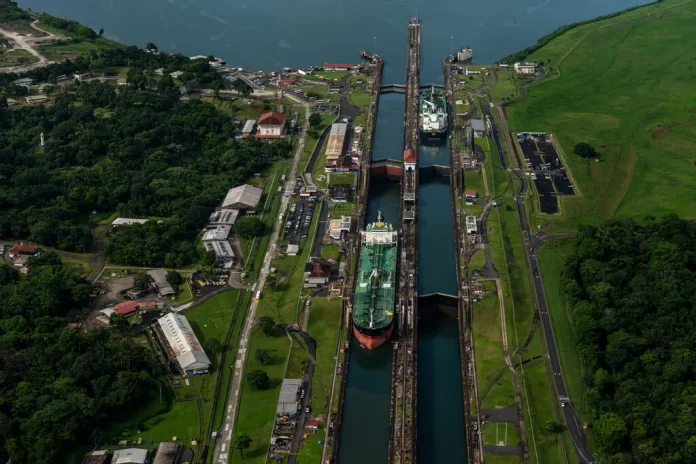US President-elect Donald Trump’s recent threat to regain control of the Panama Canal sent a message to Panama and China that allegedly sought to gain influence over the passage of US ships.
According to the Council on Foreign Relations, Chinese state-owned companies hold stakes in about 100 ports in 64 countries around the world, excluding Antarctica.
Meanwhile, possession of the Panama Canal is of strategic importance for the US, as after its commissioning the sea route from New York to San Francisco was reduced from 22.5 to 9.5 thousand kilometres. And the journey from the US East Coast to Asia was cut by 10 days compared to the route through the Suez Canal.
In 2022, the Canal accounted for 25 per cent of US liquefied natural gas (LNG) shipments to Asian countries including China, India, Japan and South Korea. The US will focus on the Canal as analysts expect LNG demand to recover in 2025.
However, control over the Canal would not only allow US warships to pass from the Pacific to the Atlantic and back, but would deny such a right to Chinese or Russian vessels.
Washington lost its dominance over the Panama Canal in 1977 when the administration of then-President Jimmy Carter ceded control over the passage to Panama. In addition to losing a key sea route, Carter also contributed to the loss of influence in Nicaragua, the severing of diplomatic ties with Iran, and crises within the US, including stagflation.
Battle for influence
Trump’s territorial claims over the Panama Canal complement his proposals to buy Greenland from Denmark and offer Canada to join the US as the 51st state. The Republican front-runner is seeking to expand American influence on the international stage amid China’s surging clout.
The offer to acquire Greenland, first announced by Trump back in 2019, would allow the US to ensure not only national but also global security, according to his statements. The island is crucial to US national defence as it hosts the Pituffik Space Base, responsible for detecting missile threats.
Political experts believe Trump is determined to push for a return of the US to the world stage as a dominant player when he takes office in January. The president-elect is also driving the US into a trade war with China and the EU through duties. In addition, he pledges to end the war in Ukraine after his inauguration.
However, Trump’s bold statements could spark protests among European leaders and in Latin America, where many politicians have positioned the US as a sovereignty challenger.
Albert Martin for Head-Post.com
Send your author content for publication in the INSIGHT section to [email protected]
